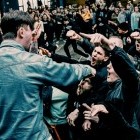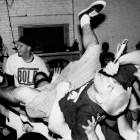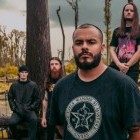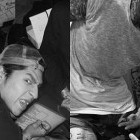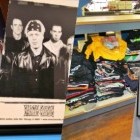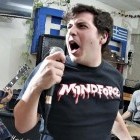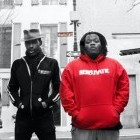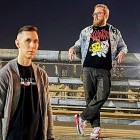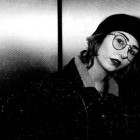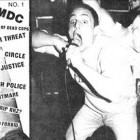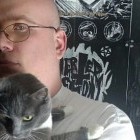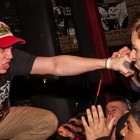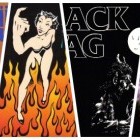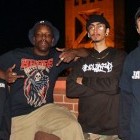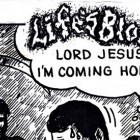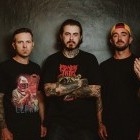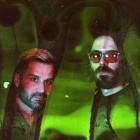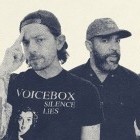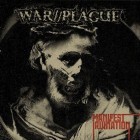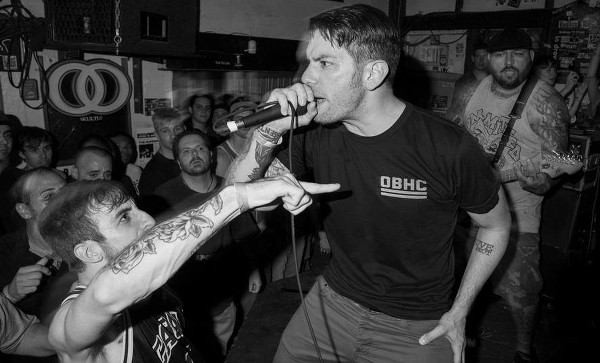
Throughout the past 20-plus years, Damien Moyal has been a member of some of Florida's most prominent hardcore and post-hardcore acts. Starting with Culture in the '90s, the singer has also spent time in Morning Again, Shai Hulud, Bird of Ill Omen, and As Friends Rust. More recently, Moyal has lent his pipes to hardcore outfit On Bodies, as well as forging a solo career under the name Damien Done.
A talented artist, Moyal also keeps busy with a popular t-shirt line he co-owns, while juggling his full-time career in product design. As crazed as his schedule is lately, Moyal carved out some time to chat about his life in the hardcore scene, his solo project, and design work.
Tell me about your upbringing.
My mother is Dutch, born in Mexico to a Dutch mother and Austrian father, and raised in Mexico and Holland. My father is French, born in Paris to Moroccan parents, who were Sephardic Jews. I was born in a suburb of Amsterdam called Amstelveen in Holland, but grew up mostly in Miami, FL. Both of my parents were into music, but as fans, not musicians. There was no emphasis on learning an instrument, and there were no instruments in the house, but there was always music playing.
What kind of music were they playing in the house?
My mother was more of a rocker, I guess. Hers were The Beatles, Led Zeppelin, Stevie Wonder, Chicago, and Electric Light Orchestra records. My dad listened to a lot of French singers like Serge Gainsbourg, Edith Piaf, lots of jazz, and occasionally dabbled in some late '80s alternative music like R.E.M., Fine Young Cannibals, and Tracy Chapman. Their musical intersections—and consequently the prevailing soundtrack in the house—was a mix of jazz, blues, classical, Bob Dylan, and Leonard Cohen.
SEE ALSO: 2016 interview with Mike McTernan (Damnation A.D., When Tigers Fight).
Were you a troublemaker as a kid?
Very much so. I was a hyperactive child, and had lots of conduct issues in school. I required a lot of attention, I got bored and distracted easily, and I wasn't respectful of authority whatsoever. In my adolescence things got a lot worse, and I started doing all of the cliché shit that bad kids do: skipping school, smoking cigarettes, drinking, smoking weed, shoplifting, etc., and as those problems surfaced, problems at home worsened. At 15, I left home to pursue my independence as a professional fuckup, and spent the next few years in state custody making more stupid decisions, until eventually turning 18, at which point I graduated from being a kid that made stupid decisions to being an adult that made stupid decisions.
Do you remember the first bands/albums you got into as a kid?
I remember falling completely in love with ELO's New World Record, which was in my mother's collection. I remember she had a copy Led Zeppelin's Coda (of all albums) on cassette, and I would listen to that repeatedly, too. At a certain point I discovered classic rock radio, and would put my alarm clock radio under my pillow at night, with the volume super low, and fall asleep listening to it. I remember hearing Ozzy's "Flying High Again" and realizing at that moment that I was born to be bad. The first record I ever bought with my own (birthday) money was Van Halen's 1984 in 1984.
Why do you think you gravitated towards heavy music as a teen?
I felt like a bad seed, so I think heavy music, in all its taboo and controversy, was an external reflection of how I felt internally. In my mind, I was bad, and bad kids listened to metal and smoked Marlboro reds and got high. It was my destiny, and I would fulfill it. Eventually, radio rock and metal led me to thrash and speed metal, and the overlapping areas of thrash, punk, and skating led me to hardcore.
SEE ALSO: Best Beatdown Hardcore Bands
Let's talk about the Florida underground hardcore scene you came up in. I lived up the coast in New York City, but I remember picking up records from Florida bands like Beyond Reason and Ego Trip back then.
Of all the outstanding bands in Florida—some of my early favorites as a youngster were No Fraud, FWA, Beyond Reason, and Quit—the band that made the most profound impact on me was Timescape Zero. It was hardcore, but darker and metal-tinged, which appealed to my metal side greatly. Plus, they were active at the time, so more relevant than a band like Beyond Reason, who was done by then. Mindframe was also a really big one for me. A few years later in the mid-'90s, while I was doing Culture or Shai Hulud or Morning Again, the bands that I felt were most integral to that era would have to have been Tension, Brethren, and Strongarm. Depending on the era, shows were at Washington Square, The Junkyard, Cameo Theater, Churchill's Hideaway, Button South, The Kitchen Club, The Mudhouse, and a number of other spots across Miami and Ft. Lauderdale. Heading north, there was The Foundation in West Palm Beach, The Old Schoolhouse in Vero Beach and The Brothel in Melbourne.
I'd love to hear a bit about your early bands: U.S. Decline, Insist, Reach, and Handoverfist.
Some friends were playing in a punk/hardcore band called Midget Stew, and they'd play parties and do originals and Minor Threat covers. They were fun. They lost their singer, and the drummer asked me to sing. I had never done so before, but I was into the same music, and how good did I need to be, anyway? That was my first band, which we renamed U.S. Decline. I left and they went on to record a really great demo with their second singer, Scott. After that I started Insist—my first proper hardcore band—with Sky, the U.S. Decline bassist, and some other friends. Insist was markedly heavier and screamier. We played two shows and broke up, at which point half of the band joined up with half of Organized Pain to form Reach. Reach was even heavier, had two singers (myself and Joel from Organized Pain), played one or two shows, and disbanded. After that I started a band called Handoverfist with a high school friend who was more into metal, and we wrote like two songs (which I remember being very good, actually—a lot of Pantera groove, but with a NYHC touch) and stopped writing when I auditioned for, and was asked to join, Culture.
How did the Culture audition come to be?
I mentioned Organized Pain above. Well, John Wylie had been in that band, and had joined Culture. At the time, Rich was both singing and playing guitar, and wanted to focus on guitar. John, having seen his former bandmates work with me, suggested contacting me, so I tried out. I had been a big fan of the Culture demo, so I was beyond stoked. I remember learning the lyrics to one of the demo songs ("Where Are You?") in my then-girlfriend's room, and being very nervous to try out. They gave me the spot, and that was that.
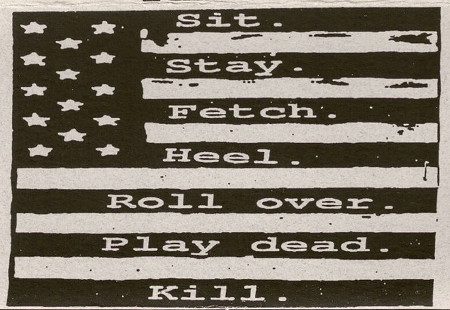
Culture's Born of You album was released on Conquer the World Records in 1995. The label was owned by a guy named Mike Warden who caught some flack in the hardcore scene for records he bootlegged at some point or another.
On a personal level, Mike was (and I'm sure still is) a very nice guy. I genuinely liked him, and we had some good times and laughs and conversations together. While I don't think he ever maliciously intended to fuck with any of the bands whose shit he secretly repressed, it didn't do him any favors. I think he was scattered, disorganized, and had money problems, and that's why he'd sell beyond what he was telling bands he'd sold. We've had a lot of words and drama with him over the years, but the truth is... I don't care. It's not like we ever got money from bigger, more organized labels that sold way more of our shit, either. But since he's publicly made such a spectacle of himself over the unjust trauma we (and Chokehold, and Boy Sets Fire, and whoever else) have supposedly caused him, it's been hard to resist stepping in and saying something every now and then.
Outside of the production, I really enjoyed Born of You. Since that was the first full-length you ever sang on, I'm curious to hear what you think about the album.
I love it. For a while, I was sort of embarrassed by it, namely after doing recordings with way better production. But in recent years I've come to really like the sound on it. t's got its problems, but it really captures the era, and in certain circles had a lot of influence.
SEE ALSO: Song of the Day: Amboog-a-lard, "Edge of Darkness," from 1990 Demo
In 1995, you helped form Shai Hulud, a band that is still going strong today. But you parted ways with the group soon after recording a demo with them. Had you guys signed with Crisis/Revelation already? Why did they ask you to leave in the first place?
We recorded the demo and sent it to Matt's [Fox, guitarist] contact at Revelation. Almost immediately, they said they wanted to sign us. This offer was for Revelation, not Crisis. We had a lot of trouble getting along in the band, and Matt and I were at each other's throats (literally) already, so the thought of singing and touring—while exciting, of course—seemed like a terrible idea. I knew he wanted me out, so I spared him the trouble, handed over all of my lyrics and artwork, and wished them luck. I had heard Chad [Gilbert] screaming along to Tension, and told Matt that they should get him to sing. I don't know if they'd already considered that or not, but I like to take credit for it.
Your next band was Morning Again.
In this instance I was straight up given the (canvas) boot. John Wylie had since left Culture, and wanted to do a new band with me, so we started Morning Again. We immediately started playing out and recorded the five-song The Cleanest War EP for Conquer the World, and the two-song Hand of Hope 7" for Intention Records. We started gaining a really good local following, and we went on tour, doing two-plus weeks of Midwest and east coast shows, and one show in Canada. The tour was great. We came back, played one or two more shows, and I was kicked out. It turned out that John had recruited Kevin [Byers] during our Dayton, OH show, and that while we continued touring, Kevin was making arrangements to move to Florida.
Where Culture, Shai Hulud, and Morning Again were in the hardcore wheelhouse, your next band, As Friends Rust, delved into a much more melodic songwriting style. That must have been a nice change of pace.
Most of the hardcore I listened to back then was melodic (Dag Nasty, Gorilla Biscuits, Turning Point, Black Train Jack, Embrace, etc.), but for some reason I had only been presented with heavy opportunities. I became friends with some guys playing in a band called Wayside, and they invited me to sit in on a practice and yell along to their jams. I did, and they ditched the incumbent singer. We renamed the band As Friends Rust (I was also doing Bird of Ill Omen at the time, and the name came from a fragment of a lyric from a Bird of Ill Omen song) and gutted most of the songs. I was super excited to be doing something that musically nodded to Samiam and Split Lip and even some Fat Wreck influences, and—while still screaming bloody murder on a lot of those early songs—was able to get some cleaner, more melodic vocals started. We recorded a demo (later released on The Fists of Time) which was rejected by Doghouse and Equal Vision, both labels that would later end up working with the band. This lineup split up, and the other members went on to form The Rocking Horse Winner.
I've always felt that Bird of Ill Omen was a really underrated metallic hardcore band, but you didn't stick around long. Was that a case of not having enough time to dedicate to the project?
Following the breakup of As Friends Rust, I was left solely with Bird of Ill Omen. I was a founding member, named the band, etc. We played a handful of shows—some of the most intense, chaotic shows in my career—but never recorded. I rejoined Culture, and during a weekend of out of state shows with Culture, a key member of Bird of Ill Omen (Joe, later of As Friends Rust) was kicked out without my knowledge and without me having been consulted. This drove my decision to quit Bird of Ill Omen and focus on Culture. They went on to record with Shane [Post] singing, and became one of the best heavy bands to ever come out of Florida.
SEE ALSO: 7 Underrated Albums Recorded at Legendary Death Metal Studio Morrisound Recording in the '90s
1996 was when you rejoined Culture and sang on the split CD with Kindred. That was my favorite Culture stuff.
They'd been having issues with their singer, Mark [Mitchell]. I don't know quite what the issues were, but they apparently came to a head during a U.S. tour, and the guys called me from somebody's house in, like, Pennsylvania or something and asked me to come back to the band. They got back to Florida and moved to Gainesville, and I began making regular drives up there to practice. At this point, Goodlife Recordings had added us to their roster, and there was a European tour booked for 1997. Since we'd be touring with Kindred, the split CD/12" was planned. I loved the songs, but the production is maybe the worst of any of Culture's many missteps in production. It moved further away from the often-personal lyrics of Born of You and into more politicized territory, with songs about the perils of a two-party system, pollution, and consumerism.
Culture had a big following in Europe, and being on Goodlife Recordings, a Belgian label, I'm sure only helped. How much touring did you do there, and what was that experience like?
Culture went twice—in 1997 and 1998—and the experience was nothing like touring in the States. It was mind-boggling that people in, like, Bavaria knew our stuff, and that a busload of kids chartered a bus from Moscow to our show in Prague. That first tour really changed our perspective on what we were doing.
Why did Culture end up breaking up in 1998?
I got drunk.
Also, the new lineup of As Friends Rust had started up, and we were much more focused on that. So, we let Culture go. It was sort of wrong of us to have continued without Rich Thurston, anyway, so we put it to bed.
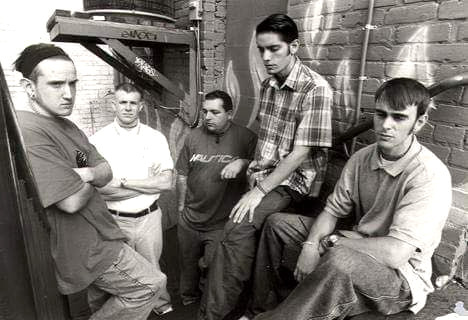
After Culture, you came back to As Friends Rust. Before putting out a proper full-length, the band issued some EP stuff, and a split with Discount. How much touring were you guys doing at that point?
So, after moving to Gainesville, a new lineup of As Friends Rust was launched. As Edward [Verhaeghe] at Goodlife was super into the demo that the first lineup had recorded, he quickly released those songs as The Fists of Time along with one new song from the new lineup. A European tour was immediately booked, and since Discount had just taken us on our first U.S. tour, we invited them to join us in Europe. At our request, since we suspected that a lot of hardcore folks that might come check us out would be unfamiliar with Discount, Goodlife Recordings did the split to support the tour. We went there in December of 1998, and at a certain point Discount went home and the second leg of our tour was with Purusam, from Sweden. We then recorded a six-song EP (known colloquially as the "Coffee Black" EP), and continued to tour pretty aggressively for years to come.
Since you had a pretty accessible sound (at least for some of the material), did As Friends Rust get on any "indie rock" bills?
Definitely. We would get billed with bands like The Dismemberment Plan or Braid one night and Shelter or Arkangel the next. That's part of what I love so much about As Friends Rust... we're sort of at the intersection of so many styles, and seemed to appeal to a pretty varied fan base.
SEE ALSO: 2016 interview with Jonathan Buske (Manipulate, Terror, The Promise, Santa Sangre, Another Victim).
As Friends Rust signed with Doghouse Records, which was a very popular label at that time. They put out the Won album in 2001.
Following another major lineup change, we wrote Won. [Label founder] Dirk [Hemsath] had been courting us for a bit by then, and we moved forward with him. He was very professional, and simply being on Doghouse got us not only a bigger audience, but also perhaps an audience better suited for what we were playing. It was the first time I'd been in a band that had anything resembling PR or management, which was cool. They gave us a decent budget to record that LP, and money for a van. This was unheard of at the time, at least for me. In retrospect, I wish we'd been smarter about publishing and royalties (I've never seen a penny for Won), but that's not an issue exclusive to Doghouse. It was a massive oversight on our part with every label we ever worked with. Anyway, Doghouse did an incredible job releasing and distributing that LP, and things were started to get very "serious" for us. We were getting a lot more attention, and some interesting opportunities were being offered, but despite being pretty proud of the LP, I wasn't feeling that last (third) lineup very much.
The last thing you did with As Friends Rust was the A Young Trophy Band in the Parlance of Our Times EP that came out on Equal Vision. Why did you decide to split?
By then, I was really not happy with the lineup. There were new forces in the band that had fantasies of radio stardom and Warped Tours or whatever, and were pushing for the sound to change to something more contrived and palatable. So, I quit. I was the only original member. They finished their touring obligations with a couple of different singers under the name As Friends Rust, but gave that up soon after and became Salem. I don't believe my vocals are particularly unique in most of my bands, but As Friends Rust is the one band I've done where I have no problem saying it absolutely does not work with a different vocalist.
You started a solo project under the name Damien Done in 2002. Did the headache of being in a band for so many years help inspire that move?
Absolutely. Upon leaving As Friends Rust, I was pretty disenchanted with the band dynamic, and had no energy for navigating divergent views and personalities. I had never played an instrument in my life, but my girlfriend at the time was a guitarist, so I started tooling around with her guitar and writing basically the minute I quit As Friends Rust. I had no ambitions of recording or playing live, but I did need to exercise that songwriting muscle, and Damien Done (originally called Rubbers) was the result.
How would you describe the Damien Done stuff?
I'm really not sure how to describe it. It's mostly acoustic-driven, but a bit dark, with some slight heavy, almost bluesy traces. Some have mentioned hearing Nick Cave, Danzig, Iggy Pop, even Alice in Chains—and lately I got a comparison to Dax Riggs. I don't know. There's also a cinematic quality to the songs, I think.
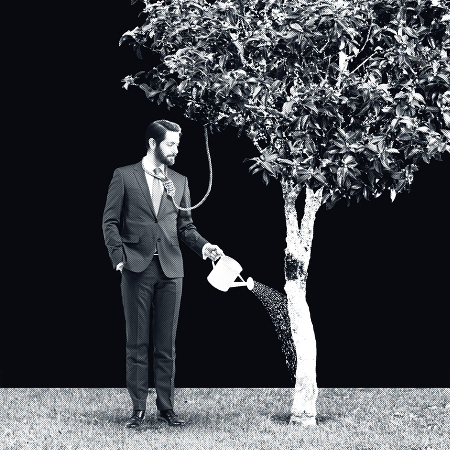
What's on the horizon for that project?
Soon, on July 8th, Demons Run Amok Entertainment from Germany is releasing two Damien Done records. The first is the Stay Black 12", which was actually recorded in 2002, but never officially released. Some songs appeared in a Belgian adult/alt-porn film, and one song was used in an episode on the Vice Guide to Travel DVD, but that's about it, aside from internet circulation. Additionally, they'll be releasing a 7" that was recorded this year, with two new songs and a third song available digitally/with download code.
Aside from that, I'm constantly busy demoing new material for a full-length, but have no label plans sorted out just yet.
You returned to your hardcore roots in 2011 when you helped form On Bodies, a band with some familiar faces in it.
Rich Thurston and I hadn't spoken much since the Culture days, since it didn't quite end on amicable terms, but ultimately we have a lot of history together and had recently gotten back in touch. He was working on a project, and sent me the songs to check out. I liked it a lot, so he invited me to sing. It had been over a decade since I'd done a hardcore band, so it was refreshing to let those demons out again. We started out with some friends from Florida, but it proved pretty impractical geographically, so—since he's in Ohio and I'm about three hours away in Michigan—we pursued a new lineup that was more local. We released a couple of EPs that I'm very proud of: one called The Long Con and one called Unremarkable Mortal, and we play when time allows. We did a short Japanese tour as well.
You've been working as a graphic designer for many years now. What kind of stuff do you specialize in?
For the past eight years, I've been in more of an industrial design/product design environment (rather than graphic). I did come from more of a 2-D background, working as an art director and managing teams of graphic designers, but this new territory is a lot more challenging and exciting. The studio I work for now specializes in structural packaging design, and my role in particular, beyond designing, consists of a lot of pitching and evangelizing on our studio's capabilities and services. It's a mix of design, sales, and marketing in some ways. It's fun.
Do you ever do any design for music projects anymore?
As for music-related work, I pretty much just do my own bands' artwork. Layouts, shirt designs, etc. I'm not opposed to working on other people's projects, I just don't always have the time.
I also have a parody shirt brand called Dinner with a friend, and that takes up a surprising amount of time. I guess that might qualify as music-related, since most of our designs reference punk/hardcore and metal.
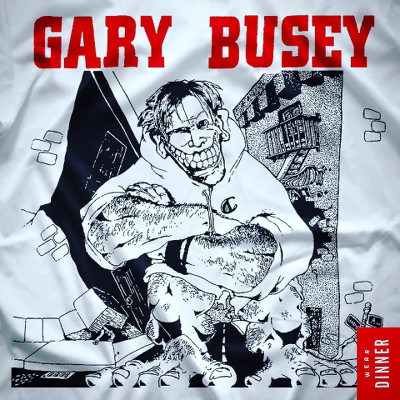
Is there anything you've wanted to do within the music and art worlds that you haven't been able to do yet? Dream project, etc.
I'm pretty focused on Damien Done right now, and I feel like I can take that project in so many different directions. I'd like to incorporate some gospel influences, maybe working with a choir on some of the newer songs. I also think about working on scores and soundtracks a lot. Those would all be new challenges, and I think I'd be satisfied with that.
Closing this thing out, I need to know... what are your top three favorite Florida hardcore bands of all time, and why?
In no particular order:
Failure Face, because they were pretty much the closest thing Florida had to that pure, raw, Negative Approach-ish expression of anger and frustration. It's filthy and nasty and gritty and honest.
Timescape Zero I mentioned a bit earlier. I found what they were doing to be really unexpected, maybe because at the time that I first heard the demo, my frame of reference for hardcore was pretty traditional. Their incorporation of chunky, heavy, thrashy riffs really spoke to me, and I liked the juxtaposition of clean vocals. Plus, they were local and active, so in them I had an attainable band to be excited about.
Finally, Culture. Yeah, I said it. But, before anyone writes me off as an egomaniac, let me clarify that my absolute favorite Culture recording was the one prior to me joining the band. That demo, and the 7" that Shadow Records released using two of the songs, still floors me. It was so weird and such an unmatched brand of heavy. So much bottom, despite the hissing, over-processed guitars, and Rich's voice is stellar and gut-wrenching. I had also never heard drums like Josh's—basically jazz drums—on a hardcore record, and this is something that was even more prominent on Born of You. And, while Born of You remains sort of cult and obscure compared to releases by many South Florida bands that followed, I'm proud that it was—I think it's safe to say—the sonic spring from which bands like Morning Again and Poison the Well and countless others drew a lot of inspiration. So that's cool.
***
Head to the Damien Done Bandcamp page to listen to more music, and also click here to see more of the Dinner t-shirt designs currently for sale.

